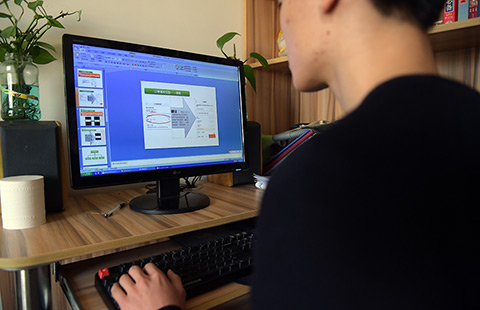AIIB to benefit closer connectivity, comprehensive development of ASEAN
(Xinhua) Updated: 2016-01-15 14:00BANGKOK - "The Asian Infrastructure Investment Bank (AIIB) will significantly promote closer connectivity and more investment opportunities for countries, especially for certain ASEAN countries with limited financial capacity," Wisudhi Srisuphan, the deputy financial minister of Thailand said.
As the top officer who led Thailand's visiting group to take part in the opening ceremony of the AIIB, Wisudhi praised the roles of the AIIB to promote inequality reduction and inclusive growth for the region.
"Poor logistics and insufficient and unreliable power grids create unnecessary costs on local business and citizens in South East Asian countries and these governments expect the AIIB can help them overcome such obstacles and improve productivity and quality of their peoples' lives," he emphasized during his exclusive interview with Xinhua.
Thailand hopes not only for support from the AIIB, it will also reciprocate, he said.
As one of 57 founding members of the AIIB, Thailand's cabinet has approved a 5-year investment plan worth nearly 10 billion baht ($280 million) for the AIIB last May, said the deputy financial minister, adding that the investment plan is expected to be passed by the Thailand National Legislative Assembly this June.
It was reported by local media that Thailand should invest at least 47.24 billion baht to maintain its AIIB investor status, while the 10 billion baht payment plan is just the initial capital of the investment.
Wisudhi expressed his optimism about the would-be cooperation between the AIIB and other Multilateral Development Banks (MDBs). He said that the AIIB can work complimentarily with existing MDBs to co-finance projects or co-offer assistance to countries. He added that there exists an enormous infrastructure gap to be bridged and sizeable room to work in collaboration for Asian communities.
"The AIIB's success depends on best practices and transparency," Wisudhi in the interview. Meanwhile, he suggested the AIIB should pay attention to cross-borders or multi-countries' projects to further improve comprehensive development, mutual benefits, as well as the prosperity of the region.
- Myanmar anticipates good prospects after opening of AIIB
- ADB's cooperation with AIIB a win-win, ADB president
- Xi to attend AIIB's opening ceremony in Beijing on Jan 16
- Beijing to host first meeting of AIIB in June
- Demand booms for high-end financial talent
- Philippines signs articles of agreement of AIIB
- Provinces map out transportation blueprints for next five years
- People prepare for Chinese New Year
- China banks' 2015 new yuan lending hits new high
- NGOs file compliant against Baidu for false advertising
- CFHI, Harbin Electric deny 'marriage' report
- Alipay being used by 100 million to access public-sector transactions
- GE moving headquarters to Boston to tap tech talent
- Lines becoming blurred between marketing and social media

















